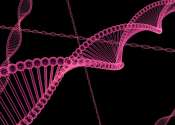Study revealing the secret behind a key cellular process refutes biology textbooks
New research has identified and described a cellular process that, despite what textbooks say, has remained elusive to scientists until now—precisely how the copying of genetic material that, once started, is properly turned ...








